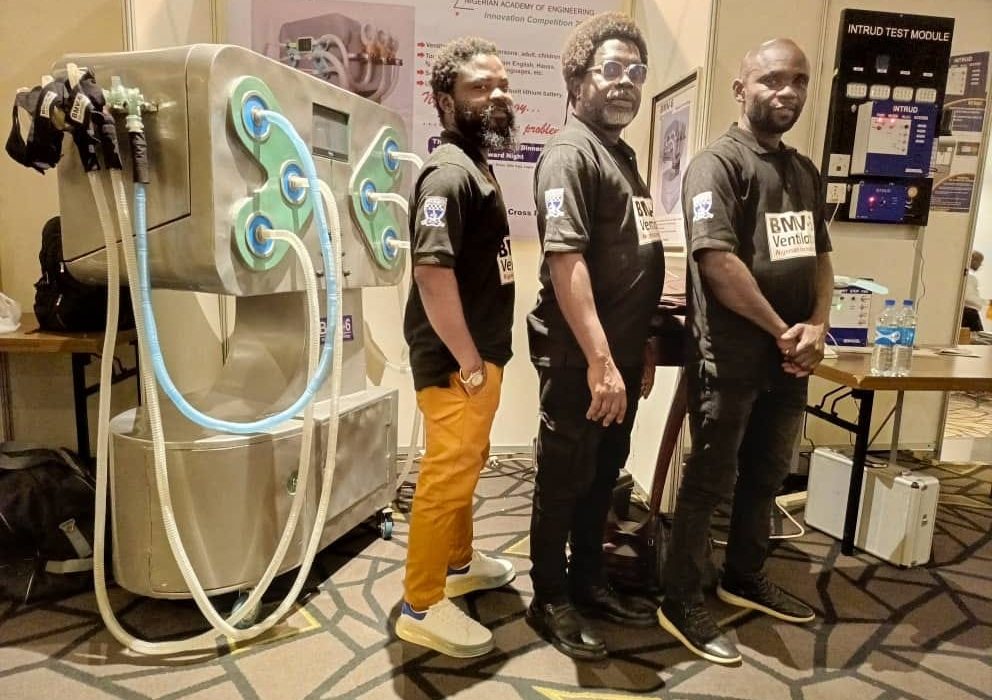By Patrick Obia
A locally made BMV-6 medical ventilator has been recognized as the third-best innovation in Nigeria at the prestigious Annual Technology Dinner, Innovations Exhibition, and Award Night hosted by the Academy.
The ventilator, invented by Prof. Babson Ajibade, a Professor of African Visual Art at the University of Cross River State (UNICROSS), is a 6-in-1 machine designed to medically support patients’ breathing.
Selected from 108 innovations nationwide, the BMV-6 stood out among the top 10 exhibited at the event in Lagos. The BMV-6 impressed the audience with its functionality, innovation, and global-quality finishing, all of which embody the Nigerian spirit of ingenuity.
Dubbed the BMV-6 Ventilator (Babson’s Multiplex Ventilator), this innovative, non-intrusive machine was developed by Prof. Ajibade over the course of five years.
What sets the BMV-6 apart is its ability to ventilate six patients independently and simultaneously, unlike other ventilators that can only serve one patient at a time.
“Knowing how epileptic the national grid is and how absent it can be in remote parts of Nigeria, the BMV-6 Ventilator is designed to operate with 24v DC, making it very low on power consumption and usable with renewable energies like solar and wind,” Ajibade explained.
He added, “The machine has an inbuilt lithium battery system to ensure it can continue working for 33 hours even when the national grid goes off, and while an alternative power is being sought. The 24v DC design of the machine substantially lowers power consumption and reduces or even eliminates the need for electricity generators, when connected to solar.”
Unique to the BMV-6 is its touchscreen interface, which can be controlled in Nigerian languages, including Pidgin English, Hausa, Igbo, Yoruba and Efik. This feature makes it user-friendly and culturally relevant, especially in remote areas of Nigeria and Africa. The ventilator is programmed to handle various client types (adult, child, and infant), dispensing oxygen accordingly.
Prof. Ajibade elaborated that the ventilator comes with six interchangeable nose masks that can be attached based on the selected client type for each port. Each of the six ventilation ports operates independently and is individually controlled via the touchscreen.
Prime Progress learned that considering the realities of Nigerian and African healthcare systems, he took a radical approach by designing the BMV-6 to ventilate six patients simultaneously, suitable for shared wards in local hospitals.
The lecturer emphasized that a locally made ventilator like the BMV-6 offers significant advantages, including lower acquisition and maintenance costs, and easier deployment in Nigerian hospitals.
During the exhibition, the BMV-6 Team, comprising Prof. Ajibade, Solomon Muze, and Bassey Ofem, highlighted the importance of investing in, producing, and utilizing homemade inventions. The Academy has embraced the innovation and plans to scale it up, seeking investors and industries to bring the BMV-6 Ventilator to market.
This groundbreaking technology, designed and produced in Calabar, southern Nigeria, is poised to make a significant impact and elevate the reputation of the institution, state, and nation on the global stage.
